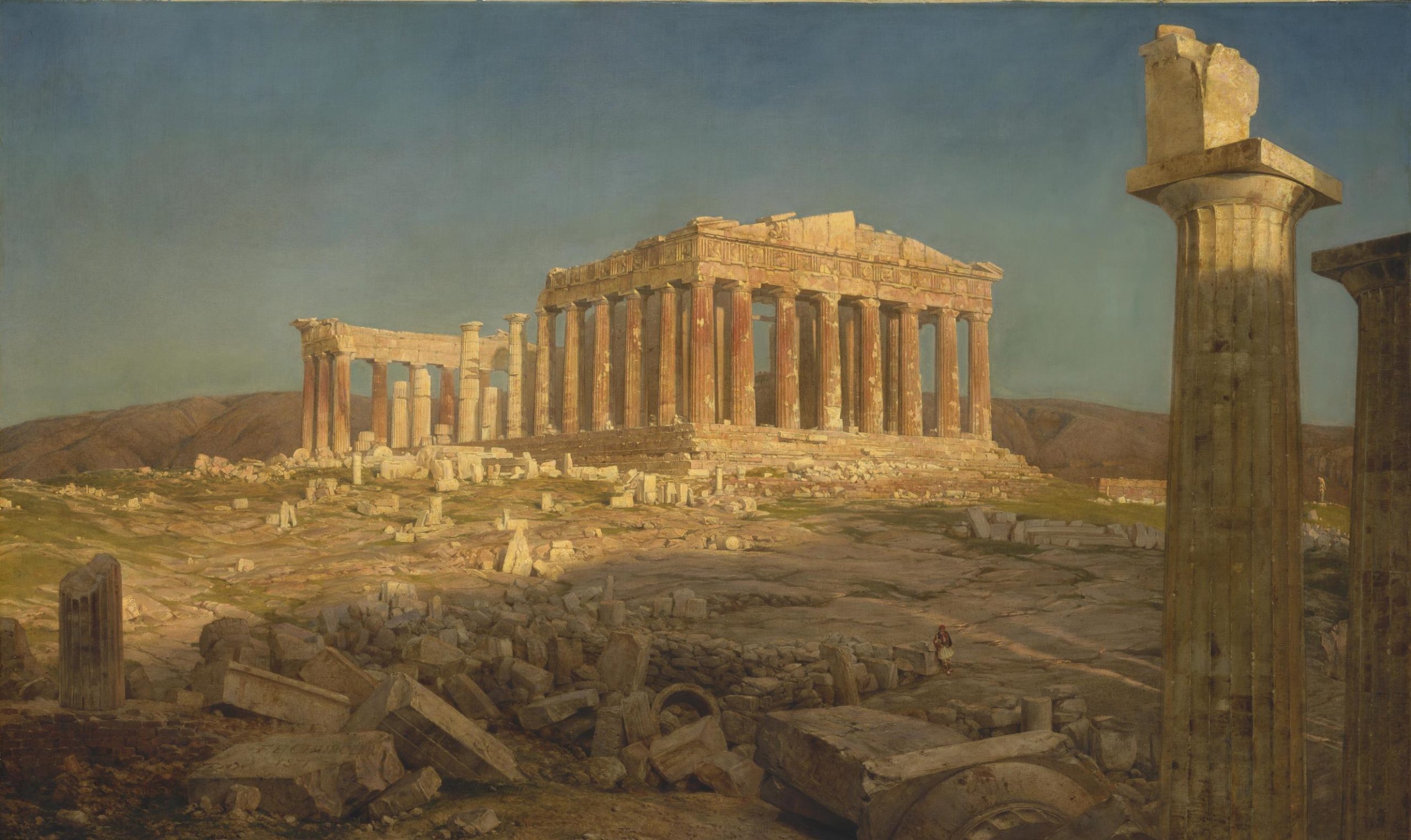The Golden Mean
By Aedile Cwerbus
Right living’s hard, the ever-urgent prow pursuing storms
or pressing up against life’s dangers, tricky shoals and shores.
The golden mean is perfect, but hard to achieve. It lies
between th’ abodes exciting envy and those men despise.
O, oft it’s pine or tower, shaken to its very core,
that falls, or mountain tops attracting striking lightning’s bore.
Be brave in hard times, apprehensive in prosperity;
for he who crushes winter will bring back asperity.
If things are bad right now, though, they won’t always just be so;
Apollo plays his lyre’s strings, as well as shoots his bow.
When straits you sail narrow, show yourself undaunted, bold;
but be wise too, and take in sails when fierce winds are unrolled.
Two Blown Up
By Cid Wa’eeb El Sur
His shoes were black and green; his socks were black; his head was small.
What could he really see when he was standing up and tall?
When he was looking down, it looked like he was going up.
It looked like he was trying to retrieve a coffee cup,
because his arms and hands were stretched as far as they could go.
He stood beside this other guy whose eyes were down and closed,
whose head was big, whose hair was black, whose shoes were blue and white,
and looked like he was trying to maintain a worthy height.
But when the IED went off between them in that space,
they were the only two engulfed by flames in fate’s embrace.
On Energy
By Ira “Dweeb” Scule
The processes surrounding us, including life itself,
are governed by the constant flow of energy, rife elf,
transforming from one state into another, evermore,
not disappearing but emerging in a diff’rent form.
Hence, energy, it seems, is not created or destroyed,
but always is conserved; the universe is not a void.
Our state of breathing and consuming is a cycle of
transferring energy, from being, seeing, hearing, love.
Inside the sun is a conversion of mass energy
into the heat and movement needed for life’s inner sea.
The Dying Gladiator
By Aedile Cwerbus
The dying gladiator, on his left elbow,
extends his right arm out to stave the pain away.
He leans upon his left thigh’s side, and cannot go;
he must remain transfixed upon that stone display.
His right knee’s up, as if he might escape his fate,
but his head leans to his left shoulder come what may.
He still has strength; and so he longs to lift his weight
from off that unforgiving horizontal plane;
but this he cannot do, and it is getting late.
Despite the strapped-up sandals on his feet, again
he will not rise. Though time is in slow motion, oh,
for him it matters naught; he fights against life’s grain.
Bruce Dale Wise is a poet in Washington State who often writes under anagrammatic pseudonyms.
Featured Image: “The Parthenon,” (1871) by Frederic Edwin Church.














